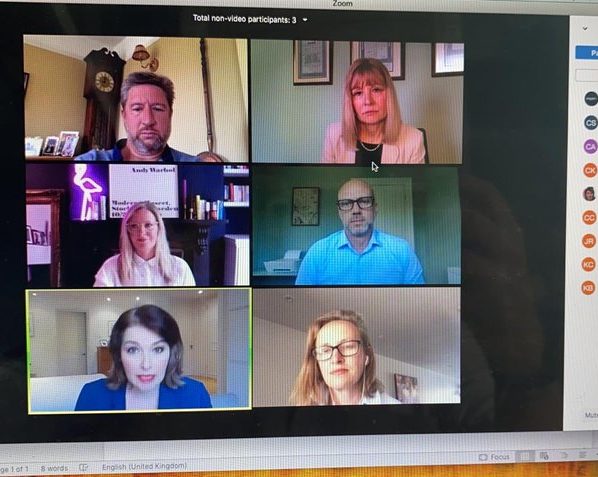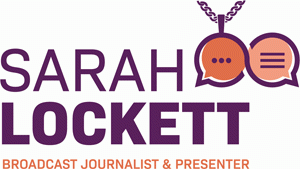This is a job title that didn’t exist a few years ago. No-one ever had an event moderator. They just held a meeting or conference, booked a few speakers and each one did their 20 minute/60 minute presentations – and that was it. Maybe one of the staff members introduced each speaker, and gave the obligatory information about the fire exits “in case of emergency” etc.
But now the most slick events are held with a moderator or facilitator (not quite the same thing).

In recent years I have been working as an event moderator, as I know many of my broadcast journalist friends have too. It’s a role that suits us, with our sense of keeping-to-time (starting promptly and not over-running) and being clear/engaging in what we say. If we are chairing panel discussions, we also use our natural curiosity and journalists’ techniques to guide the discussion. We use our news-values: knowing what is topical, controversial and newsworthy – and also what might be too negative/sensitive for the client to want to discuss (equally, if there’s a big issue which is the elephant in the room, we’ll encourage them to address it, and guide them on how to formulate their answers).
So, what do I think makes a good moderator?
- Ask the questions the audience wants to know: Sometimes, when you get a load of experts in a room, they all know the subject so well (backwards, upside-down, inside-out) that no-one asks the basic questions. The conversation becomes impenetrable. There’s jargon, industry terms, assumptions that everyone understands the issues (and they might – depending on the audience). Or they might not, especially online, when you don’t know who’s watching. So, I usually make it a rule of thumb that – if I don’t understand something – I’ll ask. Now, this doesn’t always apply: if I am hosting a medical conference, or something very technical (software, crypto-currencies, how Blockchain works, the minutiae of certain business processes) I have to let some things go. There comes a point when the audience doesn’t want too much detail! I always say: no-one understands how a fax works; we just need to know that somehow, documents reappear half way round the world looking just as they did when they were entered in, say, Timbuktu.
- You’re not the star of the show. Sure, be engaging, do a few gags if it suits your personality (and you have a joke ready to go about the subject in hand e.g. “Tunnels and Tunnelling”) but mostly people have come to see the key speakers.
- You ARE the star of the show. What I mean is, sometimes your event organisers have booked a really famous person, someone everyone is interested to hear speak, BUT they may not be great at speaking/constructing a presentation/delivering it. So they need YOU to bring out their anecdotes, to react, to “sell” what they’re saying, by
guiding the audience reaction, maybe adding that final sentence, laughing, doing a punchline. I have interviewed quite a few people now on stage – big names from politics, showbiz etc – but they didn’t want to do a speech. They wanted to be interviewed. The back-and-forth of Question-Answer-Question-Answer breaks up the time. It makes 20 minutes/60 minutes fly by! - Research: Whatever the subject is, do some research. I generally look up the “news” hits on Google, also “images” because this gives me an idea of what something looks like (e.g. company image/branding/positioning, a particular area of technology, the functions of different apps, capabilities of software etc) – and I am quite a visual learner. But (see my point in no.1) sometimes you are NOT going to understand everything (medical research, regulation for financial trading etc) – so know when to quit. Get a general idea, and then rely on your audience understanding the issue, otherwise why would they be attending? As an example, I recently hosted a conference on software used for selling products in the construction industry – very niche. I had to really concentrate – it could very easily go over my head, and they wanted me to summarise what each speaker had said – yikes!
- Questions: There’s always that awkward gap when you ask for questions and no-one pipes up. I usually say, “I know what a lot of people usually want to know about this is x…” and I ask my own questions! It gets the ball rolling. So, speak to delegates in the coffee breaks and find out what the issues are (or, if online, this will be part of your research and liaising with the client/organiser beforehand).
- The rest: there are lots of articles online listing the skills that make a good moderator, but these are just my initial thoughts. I’ve been hosting quite a few webinars online too, since the Lockdown started, so get in touch if you’d like me to help out 🙂 It’s definitely as asset having a broadcast news anchor hosting, guiding and shaping the discussion. https://twitter.com/sarahlockett https://www.linkedin.com/in/sarah-lockett-4341151/



